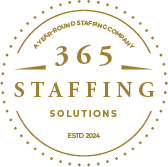In today's competitive legal landscape, finding the right talent can make or break your firm's success. While in-depth interviews are crucial, streamlining the initial stages of the hiring process can be a game-changer. This is where the "Quick 3" assessment shines. This targeted approach allows you to efficiently evaluate a candidate's core competencies and suitability for the role within a short timeframe.
This guide delves into the power of the "Quick 3" assessment, providing you with a framework to identify top legal talent and optimize your interview process.
The "Quick 3": Three Questions to Uncover Key Qualities
The "Quick 3" focuses on three fundamental questions designed to assess a candidate's problem-solving skills, decision-making abilities, and cultural fit within your firm. These core competencies are essential for success in any legal role. Here's a breakdown of the three questions and what they reveal:
1. "Tell me about a time you faced a complex legal issue. How did you approach the problem, and what was the outcome?"
- What it Reveals: This question assesses a candidate's problem-solving skills. Look for candidates who demonstrate a logical approach, strong analytical thinking, and the ability to break down complex issues into manageable steps.
- Ideal Response: The candidate should describe a specific situation, explain their thought process, and detail the steps they took to analyze the problem. A strong response will showcase their ability to research relevant legal precedents, identify potential solutions, and evaluate risks and benefits.
2. "Imagine you're working on a tight deadline with a demanding client. How would you manage the pressure and ensure the client's needs are met?"
- What it Reveals: This question assesses a candidate's decision-making skills and their ability to handle pressure. Look for candidates who demonstrate composure under pressure, effective communication skills, and the ability to prioritize tasks.
- Ideal Response: The candidate should acknowledge the challenge and outline a clear plan for managing the situation. A strong response will showcase their communication strategy for keeping the client informed, their time management skills for prioritizing tasks effectively, and their ability to delegate or seek assistance when necessary.
3. "What are your career aspirations, and how does this role fit into your long-term goals?"
- What it Reveals: This question assesses a candidate's cultural fit within your firm. Look for candidates whose aspirations align with your firm's culture and future goals.
- Ideal Response: The candidate should express genuine interest in the specific role and the type of legal work your firm handles. A strong response will showcase their understanding of your firm's culture and values, and how this role aligns with their long-term career goals.
Beyond the "Quick 3": Additional Considerations
While the "Quick 3" provides a valuable initial assessment, consider these additional factors to gain a more comprehensive picture of a candidate's suitability:
- Review Resume and Cover Letter: Carefully review the candidate's resume and cover letter to assess their experience, skills, and fit for the specific role.
- Reference Checks: Reach out to references to verify the candidate's work ethic, skills, and cultural fit within previous work environments.
- Legal Writing Sample Request: Request a writing sample relevant to the practice area to assess the candidate's legal writing skills and research abilities.
Structuring the "Quick 3" Interview: Maximizing Efficiency
Here are some tips for conducting a successful "Quick 3" interview:
- Prepare Contextual Questions: While the core "Quick 3" questions remain the same, tailor follow-up questions to gain deeper insights into the candidate's experience as it relates to the specific role.
- Active Listening: Actively listen to the candidate's responses and ask clarifying questions to demonstrate your genuine interest and engagement.
- Behavioral Interviewing Techniques: Utilize behavioral interviewing techniques by focusing on past experiences and behaviors to predict future performance.
- Time Management: Allocate a specific timeframe for the "Quick 3" interview and ensure both parties can express their thoughts and ask questions comfortably within that timeframe.
The Benefits of the "Quick 3" Assessment
The "Quick 3" assessment offers several advantages for legal firms:
- Increased Efficiency: This targeted approach allows you to efficiently screen a large pool of candidates and identify those with the core competencies most relevant to the role.
- Focus on Core Skills: By focusing on problem-solving, decision-making, and cultural fit, the "Quick 3" helps identify candidates who possess the fundamental skills necessary for success in a legal environment, regardless of their specific area of expertise.
- Improved Candidate Experience: This streamlined approach saves time for both the interviewer and the candidate, making the interview process less stressful and more efficient.
- Predictive Value: Focusing on past behavior helps predict future performance. Understanding how a candidate tackled challenges in previous roles can provide valuable insights into their approach to legal problems and client service within your firm.
Conclusion: Streamlining Your Hiring Process with Confidence
The "Quick 3" assessment is a powerful tool for legal firms seeking to optimize their interview process and identify top legal talent. By incorporating this targeted approach into your recruitment strategy, you can effectively screen candidates, assess core competencies, and make informed hiring decisions with greater efficiency and confidence. Remember, the "Quick 3" is just the first step. Combine it with a thorough review of resumes, reference checks, and legal writing samples for a holistic evaluation of potential hires. With a well-structured "Quick 3" assessment in place, you can refine your interview process, save valuable time, and ensure you're attracting and hiring the best legal talent that your firm has to offer.


